Beschreibung
Produkt-Infos
Pharmacoll® Cushion is a gelatin free hydrocolloid adhesive wound dressing laminated to a waterproof thick
cross-linked polyethylene foam film backing .
Pharmacoll® Cushion forms a gel upon absorbing wound exudates providing a moist wound environment,
supporting granulation and epithelialization. Gel formation prevents Pharmacoll® Cushion from adhering to
wounds and dressing can be removed without causing pain and without damaging the granulation and
epithelial tissue. while the polyethylene foam backing work as a cushioning decreasing the pressure and
friction on the injured area which help to relief the pain .
• Adhere to both dry and moist skin surfaces.
• Deliver gentle and secure adhesion that does not irritate the skin.
• Have fluid absorption capacity that is adjustable based on adhesive formula.
• Provide barrier properties to external contaminants with secure adhesion to skin.
• Are flexible and conformable and mold to difficult anatomical contours.
1- light to moderately exudating wounds second degree burns.
2- leg ulcers.
3- pressure ulcers.
4-chronic slow healing wounds and abrasions, skin cut.
5- Used also for blisters treatment –corns –callus.
6- donor site and post-operative surgical wounds.
- Don’t use on patient with known sensitivity to the product or any of its components specially Polyisobutenes and Carboxymethylcellulose.
- Pharmacoll® Cushion should not be used on third degree burns, on exposed muscle, bones and
tendons, nor on infected wounds.
1- Discoloration and bulging of the dressing indicate it should be changed
2- Wounds showing clinical signs of infection (temperature, pus, inflammatory signs) should be treated
under medical control before resume using of the dressing
1. The dressing should remain in place as long as possible.
2. If leaks are detected, the dressing should be changed immediately.
3. Change the dressing when maximum absorption has been reached.
When the Pharmacoll® dressing comes into contact with wound exudates, the hydrocolloid swells and forms a gel that covers the wound and maintains moisture. This gel continues absorbing the wound fluid and minimizes adherence to the wound. When the dressing is changed, the wound stays protected by a film of gel.
- Clean wound area.
- Evaluate the wound and select the dressing size to allow 2.5 cm (1 inch) of the hydrocolloid adhesive to extend beyond the wound edge.
- Open the pouch and handle the dressing using gloves/forceps.
- Entfernen Sie die Schutzfolie vom Verband.
- Zentrieren Sie den Verband über der Wunde und der Wundumgebung und drücken Sie dann vorsichtig auf die Klebeseite des Verbands.
- Es sollte darauf geachtet werden, dass der Verband nicht unnötig gedehnt wird, was zu einem mechanischen Trauma der Wunde und der umgebenden Haut führen kann.
- Entfernen Sie den Verbandsrahmen, beginnend oben und arbeiten Sie sich nach unten vor. Verstärken und glätten Sie den Folienrand von der Mitte nach außen. Fahren Sie auf einer Seite nach unten fort und enden Sie an der Kerbe. Wiederholen Sie den Vorgang von der anderen Seite, bis alle Teile des Rahmens entfernt sind. "Im Falle von Pharmacoll® Comfort and Pharmacoll® Comfort Plus “.
Verbandsentfernung:
- Heben Sie die Ränder des Verbands (oder den Folienrand) vorsichtig an, während Sie auf die Haut drücken
- Ecken weiter anheben, bis sich alle von der Hautoberfläche lösen.
- Auf die Haut andrücken, um Verband von der Haut zu trennen.
- Entfernen Sie vorsichtig den Verband und falten Sie ihn dann über sich selbst, indem Sie vorsichtig in Haarwuchsrichtung ziehen.
- Alternativ erleichtert auch horizontales Dehnen und Anheben des Verbands das Entfernen in den meisten Situationen.
- Wiederholen Sie die Anwendung, bis der Heilungsprozess abgeschlossen ist.
Wie oft den Verband wechseln:
- Der Verband sollte so lange wie möglich an Ort und Stelle bleiben.
- Wenn Undichtigkeiten festgestellt werden, sollte der Verband sofort gewechselt werden.
- Change the dressing when maximum absorption has been reached.



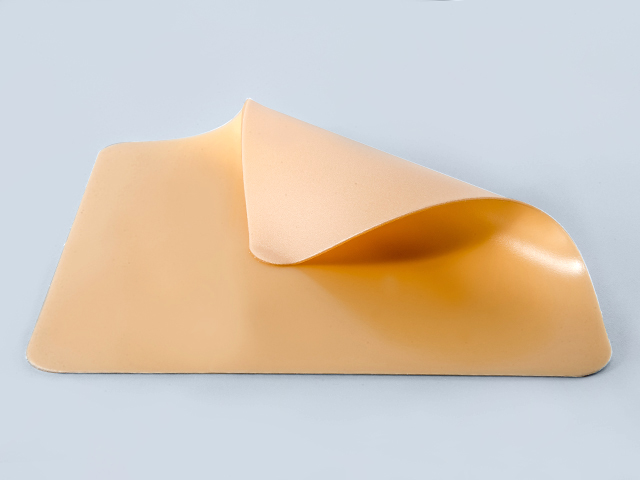
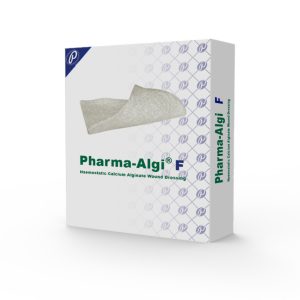
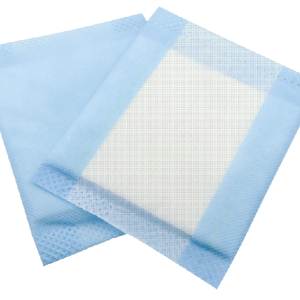
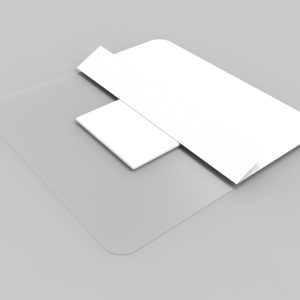
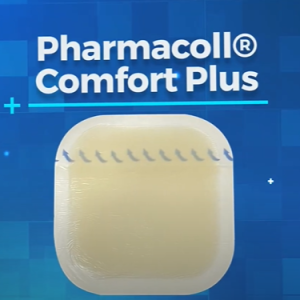
Bewertungen
Es gibt noch keine Bewertungen.